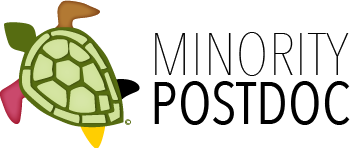How would readers react to a self-proclaimed science news report about the misguided "connection" between race and IQ? What type of comment would a reader leave on a self-proclaimed scientific story about the number of African-American athletes in the NBA compared to other sports leagues?
I wouldn't know, because these are just two articles that have been suggested in edit meetings I've attended in my professional career that I dissuaded my colleagues from pursuing due to the content potentially using a racially insensitive approach.
At the beginning of my journalism career as a bright-eyed reporter at the undergraduate institution I attended, I noticed that I quickly (and often unknowingly) served in the role as the token African-American person in the newsroom.
For instance, when my colleagues covered news stories about affirmative action, I was often asked to weigh in with the minority students' perspective.
When my professional career began, any race-related story that came up in edit meetings – such as one about a high school gym teacher using the N-word – it was silently agreed that I would spearhead the coverage.
But it wasn't until my career drifted into the scientific realm that this role of mine began to take an interesting turn. Before, I was asked to cover stories about race relations. Now, I sometimes come across stories about scientific theories that could perpetuate a belief in racial superiority – and when such instances occur, I realize that having just one token minority journalist in the newsroom is not enough.
The public relies on news organizations to paint a fair and accurate portrayal of the world, which requires diverse perspectives – and when it comes to communicating science, the role of having a diverse group of minds approach a story is critical.
As a journalist, I've made an effort to no longer serve as the token African-American person in the newsroom, but rather to serve as the token diversity advocate. To bolster this role, I remain an active member of the National Association of Black Journalists, participated in the White House's We The Geeks: Women Role Models Google+ initiative, and voluntarily speak to students in high school classrooms around the U.S. through the LinktoLearn organization.
having just one token minority journalist in the newsroom is not enough
I hope that my efforts may inspire other young people of color and girls to not only pursue a career in journalism and/or science, but also to realize the importance of having someone who has walked in their shoes in journalism leadership positions.
Attending ScienceWriters2014 could help further my efforts to be such a role model to young people by allowing me to hone my skills as an on-camera science journalist, to meet other science reporters who also may have an interest in giving back to minority communities, and to learn more about how to support diversity in science writing.
As a minority science journalist for a non-science publication, attending ScienceWriters2014 will help me to most effectively learn how to communicate science-related news to the general public -- as well as to effectively communicate why some stories should be of strong interest to all communities, and why others should be approached with a critical eye.
References
M. Gladwell (1997) The Sports Taboo
R.J. Sternberg, E.L. Grigorenko, K.K. Kidd (2005) Intelligence, race, and genetics. American Psychologist 60(1): 46-59
Jacqueline Howard is a science associate editor for The Huffington Post and host/producer of HuffPost Science's Talk Nerdy To Me video series. She appears weekly on HuffPost Live, recently appeared on MSNBC's newscast, and was selected to participate in The White House's "We the Geeks: Women Role Models" initiative. Previously, she served as an editor at AOL's local news company, Patch, where she spearheaded the "Patch of Nature" reporting project. As a published writer and television producer, Howard has produced content for USAToday.com, MTV Networks, CBS News Productions and WCPO-TV. She holds a master's degree in journalism from the University of Southern California and a bachelor's degree in communication studies from the University of Michigan—Ann Arbor. Website: www.jacqueline-howard.com. Any opinions expressed in this article are solely those of the author.
The citation for this article is:
J. Howard (2014) A Tough Newsroom Discussion: Why Diversity Is Needed In Science Journalism. DiverseScholar 5:3
Originally published 3-Oct-2014
DiverseScholar is now publishing original written works. Submit article ideas by contacting us at info@DiverseScholar.org. This work is licensed under a Creative Commons Attribution-Noncommercial-No Derivative Works 3.0 Unported License.
![]()
